- Home
- Captain W E Johns
04 Gimlet Mops Up
04 Gimlet Mops Up Read online
CHAPTER I
AN UNOFFICIAL RENDEZVOUS
ACCORDING to contemporary accounts, to own a house a century ago in Brummel Square, London,W.i., was a thing to boast of. But a century is a hundred years, and in that time many things change. In Brummel Square they did not change for the better. The decline of the Square as a place of residence began when the Great Northern Railway track was laid through the gardens on the east side. By the end of the Victorian Era its atmosphere of decorous affluence had faded, like the paint on its doors and windows, and the railings that penned in—as if they were in danger of straying—the group of sun-starved lime trees that occupied the central area.
One by one, by death or design, the proud house-holders had been called away, leaving their rooms to be adapted to the requirements of small hotels and boarding establishments. The brief period of prosperity that followed was brought to an abrupt end by the blitz of 1940. Not every house was destroyed, of course, but those not demolished were sadly scarred. By the autumn of 1946 the damage had still not been repaired, so that even on the brightest of days the Square presented a melancholy spectacle. In the bleak gloom of a November evening, with a chill damp wind moaning through the gaunt skeletons of the once happy homes, it seemed that the cold hand of death still lingered—at least, so thought Nigel Peters as, for the first time in his life, he surveyed its mutilated, fire-charred dwellings from the rubble-bounded end of what had once been the Stratton Street entrance.
Nigel, better known as "Cub" in No. 9 Troop, Combined Operations, (the celebrated King's "Kittens") was not alone.
With him were two other members of the once redoubtable unit, now disbanded: Corporal "Copper" Colson, and ex-. trooper, "Trapper" Troublay. The nicknames, as is so often the case in the army, were appropriate, for until the war had caused him to change his blue uniform for khaki, Copper had in fact been a London policeman; and Trapper, a French Canadian, before stories of Nazi atrocities had brought him from the backwoods wherein he had spent his early years, had been a trapper.
In appearance the three comrades had nothing in common. Copper, who had started life as a pickpocket in the East End, as a man stood six foot two inches in his socks. His composition of bone and muscle, backed by a fast-working Cockney wit, had enabled him to create a record by winning the City Police Heavyweight Trophy three years in succession. His fresh-complexioned face normally wore an expression of naive sim-plicity. This, however, was no guide to his behaviour in battle.
Trapper Troublay, lean, dapper, swarthy, was more French than British, a fact that became evident when he spoke, for although he had the usual trans-Atlantic drawl he had a habit of falling back on French expletives when his English failed him, as it sometimes did in moments of excitement or deep feeling. A wisp of black moustache decorated his upper lip—the surviving hairs, he once explained, of a beard he had tried to grow to hide a scar which had been the parting gift of a grizzly after a difference of opinion on the important matter of life or death. His favourite weapons, also survivors of his trapping days, were a small bow and arrow and a businesslike-looking Indian skinning knife; and with these he was so singularly adept that his C.O., after one demonstration, had raised no objection to their inclusion in his war kit. Apart from these unorthodox weapons it must be made clear that he was no ordinary performer with rifle or revolver, as was only to be expected of one who had used both weapons con stantly as a means of gaining a livelihood. From the same Indians who had given him the knife he had picked up a trick of grunting and clicking his tongue in moments of emotion, presumably to save words.
Cub Peters was several years younger than the comrades to whom he was attached by the battle-forged bonds of war, for he had gone straight from school to Europe at the time when death and destruction were the orders of the day. He had grown into a lean, loose-limbed lad, although what he had seen in Occupied France had left its mark upon his face, ageing it beyond his years. He had not settled down to the routine of civil life for the simple reason that, like many others, he found it impossible to do so. When one is young the habits of four years are not easily discarded.
He stopped when he came to the Square and surveyed the ruins dispassionately. He had seen plenty of ruins in his time. "Gimlet said number ten," he remarked. "As I can see only five houses standing our objective shouldn't be hard to find"
"Nine o'clock was to be zero hour," observed Copper. "It must be close on that now. Let's keep movin'. Where Gimlet is concerned you might as well be an hour late as sixty blinkin' seconds. Besides, I want ter know what all this is about. Blimy, what a joint.
They must 'ave copped a fair packet 'ere. What's Gimlet doin' in a place like this? That's what beats rile."
" Tch ," clicked Trapper. "Let's find out."
They walked on to the houses that were still more or less intact. Tarnished brass figures on a door told them when they had reached their destination. White letters on a cracked fanlight proclaimed that the establishment was, or had been, the Hotel Belvedere.
Mounting two dirty steps Cub rang the bell.
The door was opened instantly by a man, a civilian, none of them had ever seen before; but there was something in his manner, in his bearing, that caused Copper to give him a second glance before nudging Cub with an elbow, with a whispered, "Plain-clothes man.
Spot 'em every time."
"We've an appointment with Captain King," announced Cub.
"Captain King is here," answered the man. "You must be the party he's expecting. Come in."
They entered. The door was not only closed behind them, but locked, Cub observed. The janitor turned to an inner door, knocked, and pushed it open. "Here's your men, sir," he announced to someone inside.
Stepping forward Cub saw his late commanding officer, Captain Lorrington King, D.S.
O., M.C., known affectionately to the troops under his command as "Gimlet." He was standing with his back to a fire that gave at once an atmosphere of warmth and comfort to a shabbily furnished room. The main feature was a large dining-room table round which chairs had been placed as if for a committee meeting.
"Come in, you fellows," invited Gimlet, offering a hand to all three in turn. "Glad to see you looking so fit."
"What's cookin', sir?" inquired Copper, with the easy yet respectful familiarity that comes of long association in dangerous places.
Gimlet selected a cigarette from a gold case. "I know no more about it than you do," he replied.
"We got our orders to be here from you, sir, so here we are," said Copper. "I mean, where did your orders come from if I may ask? After our jaunt in Scotland I thought you said you was goin' back home a'fox-huntin'?"
"That was my idea," admitted Gimlet, "but it happens that I'm still on Reserve, so when I received orders to report here to-night, I came. I was asked to bring you with me if you were available. That fact, considered in conjunction with the name of the officer who issued the order, leads me to suspect that as far as we are concerned the war is not yet over. My instructions came from the War Office. They were signed by General Sir Saxon Craig, late Assistant Director of Military Intelligence —now, he tells me in his letter, Chief Liaison Officer between the War Office and Scotland Yard."
"Numero Neuf," breathed Cub.
Gimlet nodded. "That was the name by which he was known to the French Underground movement, and to us when we were mixed up with it . Why he has asked us to come here, instead of going to the War Office or Police Headquarters, I don't understand, but doubtless he had a good reason for it. We shall soon know. He's not the sort of officer to keep us waiting. By the way, corporal, see about getting your hair cut. It's too long."
"Blimy, sir, I 'ad it cut yesterday," protested Copper. "Then get it cut again by someon
e who knows how to handle scissors."
Further conversation of an intimate nature was prevented by the entrance of a man who, like themselves, was dressed in civilian clothes. Cub recognised him at once, for they had met during the war, in France. It was General Sir Saxon Craig, once known in the enemy-occupied countries of Europe as Numero Neuf—otherwise Number Nine.
Regarding him
anew, Cub found it hard to believe that behind the mild, commonplace face, was one of the shrewdest brains of the British war-time Intelligence Service. It was clean shaven, with little about it to merit description. It was neither fat nor thin, nor was there an outstanding feature. Slightly bald in front, wearing spectacles, the General looked more like a prosperous tradesman than a spy hunter of international renown. But his manner, as he invited them to be seated, was brisk, alert.
"Make yourselves comfortable," he requested. "Smoke if you like. I shall be as brief as possible, but we may be some little time." As he spoke he pulled out the chair at the head of the table, sat down, and opening a portfolio selected some papers.
"Now," he continued, "first of all let me make clear certain things that must to you seem to call for explanation—why you
were sent for, and why such a place as Brummel Square should be chosen for the rendezvous when, as Liaison Officer between M.15. and the C.I.D., I have quarters at both the War Office and Scotland Yard. Both departments, and indeed, the Government, are faced by a problem, a threat, of considerable gravity. To me has been given the questionable privilege of solving it. It is not one for which any existing government organization is really qualified to deal, unless—and this is my own idea—it turns out to be a commando job. That is to say, for men with active service commando experience.
As far as I can see at present they alone have the necessary qualifications to deal with circumstances that may arise. That is why I sent for Captain King, and asked him to bring with him those members of his unit whom I met in somewhat peculiar conditions in France a year or two ago." The General smiled faintly at the recollection.
"I am going to ask you all to help me to solve our problem," he continued. "But in fairness I must warn you not to be hasty in your decision. First hear what I have to say. I arranged this meeting here rather than at the War Office or Scotland Yard because, for reasons which will presently become apparent, the less we associate with either place the better. In short, we are out on our own—I hope. I say I hope, because the men against whom we are opposed may have a spy system of their own, so they may know that I am the individual who has been selected to destroy them. If they do know that, then I am already in danger, and so are you. However, I hope that here we shall remain undisturbed for at least a little while. Of course, being here doesn't mean that we are cut off from official support. On the contrary, the entire resources of the fighting services, and the national police organization, are at our disposal should we require them. That alone will give you an idea of the seriousness with which the heads of the State regard the menace, which, for your private ears, I will now reveal." The General leaned forward and dropped his voice a trifle.
"You will have heard, no doubt, of the Nazi Underground Movement, the members of which call themselves Werewolves. It did not turn out to be the vast national secret army the Nazi leaders hoped for. Even in Germany itself, where the organization first operated, the majority of members were lukewarm and soon fell away; but there remained a kernel, an inner core of diehards, a murder gang which, supported by hidden funds, was powerful enough to spread its tentacles into the liberated countries. Who is at the head of it we don't know. We don't even know if the thing is one cohesive unit or a number of isolated bands, some slaying out of sheer revenge, others using the Werewolf organization to cover private criminal enterprises. Either way the thing is a formidable outfit, and one which, since the Werewolves have now launched an attack on this country, we have got to tackle. How many of them are here we don't know. How they got here we don't know. But we do know this. They are here, and those who have arrived are, beyond all shadow of doubt, the worst possible type." The General looked slowly round the table before he resumed.
"This is no common affair of gangsterism such as was seen in the United States in prohibition days. It is something infinitely more deadly. The American gangster was concerned primarily with making money and killed only in the furtherance of that object or in self defence. The men with whom we have to deal are not concerned with money.
They kill for the sake of killing, inspired by such a hatred as is hard for a normal balanced brain to comprehend. They are, in fact, the ultimate product of Nazi-ism. If the average Nazi is a fanatic, a man from whom the virtues and all humane emotions have been eliminated, how much worse, we may ask ourselves, are the high priests of this pernicious creed?—for that is what the surviving Werewolf leaders are.
"You will be wondering why these men have come here. That is soon answered, for they have told us. The information
was broadcast from a secret radio station somewhere in Germany three weeks ago.
These men have come here to kill. As you know, during the war the Allies compiled a list of war criminals, setting down the names of those Nazis who had committed atrocities, with the object of punishing them should they after a fair trial be found guilty.
Certain Nazi leaders, in their rage and hate, are now claiming to do the same thing, out of revenge. They have compiled a list of selected victims—not men who have committed atrocities, mark you, but British subjects who played a major part in winning the war.
Rightly or wrongly, possibly because we stemmed their victorious advance, the Nazis hold Britain responsible for their downfall. Now, as I say, they are out for vengeance.
They have turned to assassination, and are attempting to justify their crimes by going through a form of mock trial. The victim, having been condemned to death—a foregone conclusion—is then seized and executed, by hanging, shooting, or decapitation, in a pseudo-official manner.
"The first intimation we had of this was, as I said just now, a broadcast by a secret Nazi radio station. This was followed by a broadcast from this country, from what we suspect was a mobile unit. Within the next ten days a number of people in this country received what purported to be a death warrant. How many of these sinister documents were sent out we don't know. Some of the recipients may not have taken the threat seriously. A few did, and got in touch with Scotland Yard. During the following week we had ample proof that the threat was no idle hoax. First, Sir Eric Gurney, one of our leading Intelligence Officers, was found hanged in Hyde Park. There were indications that a car had been driven under the tree on which his body was found, and a rope made fast to a bough. A noose was then passed round Sir Eric's neck and the car was driven away leaving him hanging. Captain Martin Winhope, V.C., of the Special Air Service, was the next victim.
His body was found, riddled with bullets, at the rear of his own West End club. To both bodies was attached a card setting out, under the Nazi swastika insignia, the alleged crimes for which these officers had been condemned to death." Again the General paused and glanced round at the faces of his listeners.
"There is no doubt that this terrorism will be continued," he went on. "Clearly, we shall have to do something about it, and without loss of time, for any day may bring us a fresh tragedy. Remember, not only are these Werewolves the enemies of those they intend to kill, they are the enemies of all decent society, and as such they must be dealt with. They call themselves Werewolves, so on their own admission they are inhuman creatures.
There is only one way to deal with a blood-crazy wolf, and that is shoot it, for such a beast is beyond redemption. I am going to ask you to fmd the lair of these monsters, and having found it, drag them out one by one and kill them. It is a terrible thing for me to have to say that, because it would seem to put me on the same low level as the Nazis; but what is the alternative? Take them alive by all means if you can, and we will give them a fair trial, for that is our way of d
oing things; but a cornered wolf is a dangerous animal, and to attempt to take it alive may involve risks not justified by the circumstances. One cannot apply justice to a wild beast. Moreover, in this case the Home Office takes the view that these Werewolves, by announcing a policy of premeditated murder which they have already put into practice, have condemned themselves. Our business, therefore, is to destroy them, as they have destroyed others, and will, if we do not prevent it, destroy still more. Remember, it does not necessarily follow that these creatures will wear the appearance of wolves. It is more likely that they will be too crafty for that. There is an old fable about a wolf in sheep's clothing. These wolves may play the same trick—or some of them may. Indeed, we must expect that. Some may have been in this country right through the war, for it would be vainglorious to boast that we had caught every enemy agent planted here by the Wilhelmstrasse. No doubt the clever ones slipped through our counter-espionage net. They may still be here, with well-established hideouts which the Werewolves may now be using as their dens. They must be found.
Naturally, you will say how?"
"From which I take it that so far you have no clue as to who these Nazis are, or where they are?" murmured Gimlet.
"That, I regret to say, is the case," answered the General. "As to who they are—well, we might guess at some of them. We are aware that certain Nazi war criminals, knowing what their fate would be if they were caught, joined the Werewolf organization to carry on the war against Britain in their own way. So far these men have eluded us." The General looked down at one of the documents he had taken from the portfolio. "For example: there is Hugo Stresser, late Commandant of the Growsky murder camp—the man who on one occasion burnt to death in a barn more than six hundred internees; there is Rudolf von Pless, a savage who ordered the shooting of forty-seven British airmen prisoners of war for attempting to escape; there is Lother Eindhofen, a group commander of the S.S. who was responsible for many atrocities in Occupied France; there is Karl von Runtz, one of Himmler's pet torturers, and Otto Vossmayer, Under-Commissioner of Police in Austria, responsible for the deaths of hundreds of anti-Nazi Austrians. He speaks English fluently, having lived in this country and America. These are some of the Nazi criminals who have disappeared. In the chaos that followed the German collapse escape was not difficult. They had ample time to make plans. Together they would form about the worst gang of thugs ever brought together. They may be over here—but that is surmise. Anyway, all of them hate us to the limit of mania."

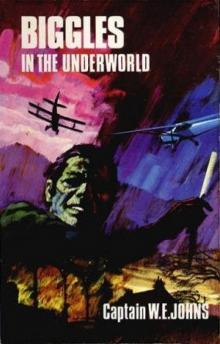 Biggles in the Underworld
Biggles in the Underworld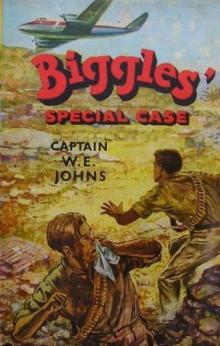 Biggles' Special Case
Biggles' Special Case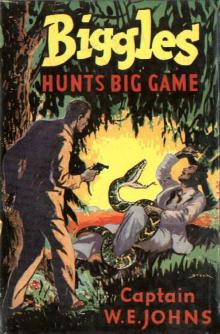 34 Biggles Hunts Big Game
34 Biggles Hunts Big Game 03 Now To The Stars
03 Now To The Stars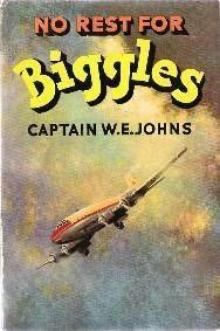 55 No Rest For Biggles
55 No Rest For Biggles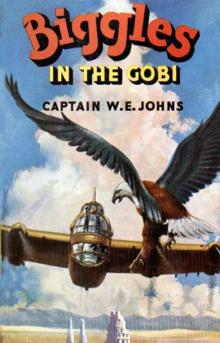 46 Biggles in the Gobi
46 Biggles in the Gobi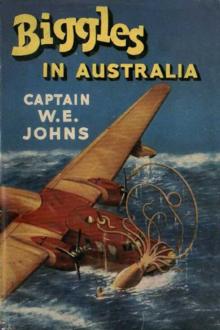 52 Biggles In Australia
52 Biggles In Australia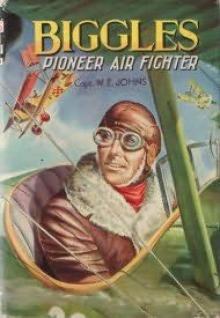 51 Biggles Pioneer Air Fighter
51 Biggles Pioneer Air Fighter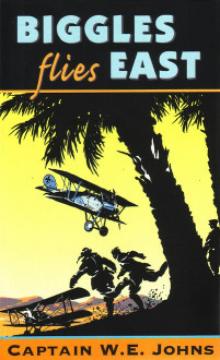 05 Biggles Flies East
05 Biggles Flies East 28 Biggles In Borneo
28 Biggles In Borneo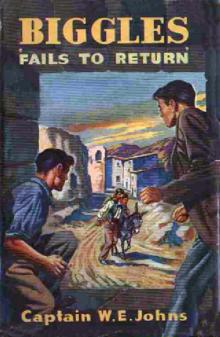 29 Biggles Fails to Return
29 Biggles Fails to Return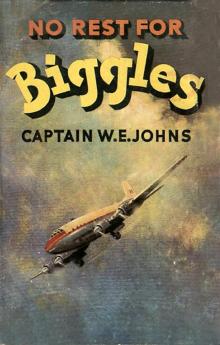 55 No Rest For Biggles (v2)
55 No Rest For Biggles (v2)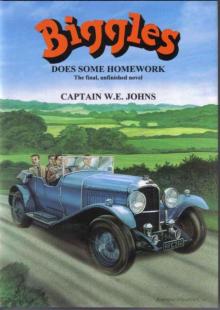 Biggles Does Some Homework
Biggles Does Some Homework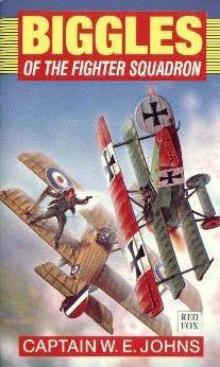 Biggles of the Camel Squadron
Biggles of the Camel Squadron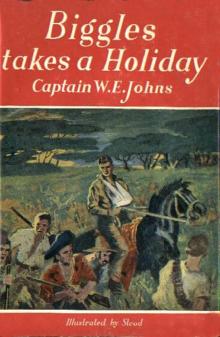 35 Biggles Takes A Holiday
35 Biggles Takes A Holiday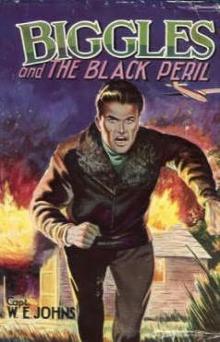 Biggles And The Black Peril (06)
Biggles And The Black Peril (06)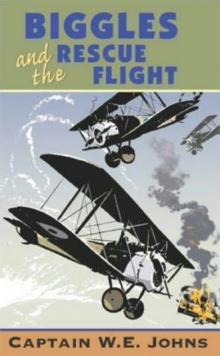 17 Biggles And The Rescue Flight
17 Biggles And The Rescue Flight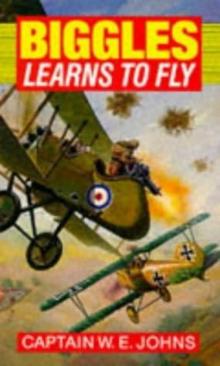 Biggles Learns To Fly
Biggles Learns To Fly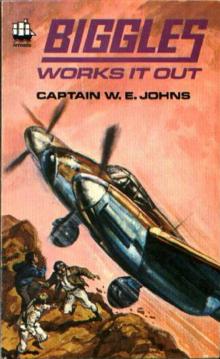 40 Biggles Works It Out
40 Biggles Works It Out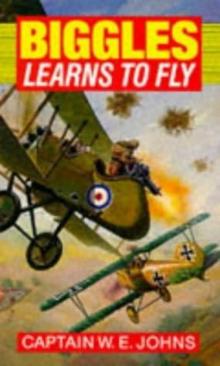 05 Biggles Learns To Fly
05 Biggles Learns To Fly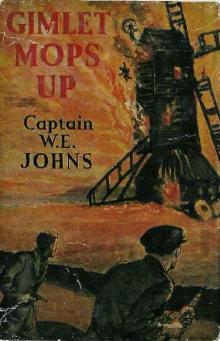 04 Gimlet Mops Up
04 Gimlet Mops Up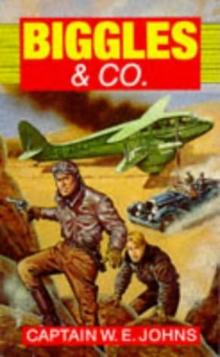 10 Biggles and Co
10 Biggles and Co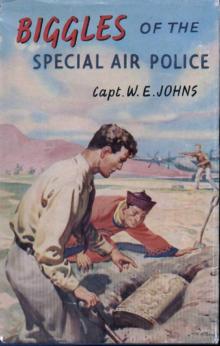 47 Biggles Of The Special Air Police
47 Biggles Of The Special Air Police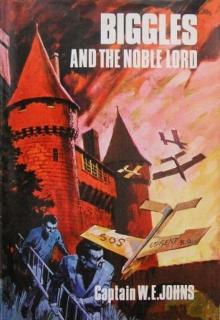 Biggles and the Noble Lord
Biggles and the Noble Lord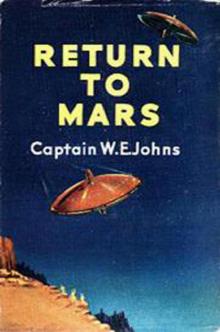 T2 Return To Mars
T2 Return To Mars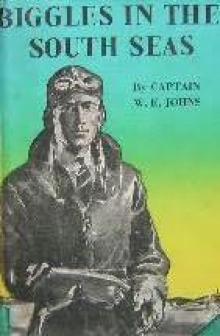 21 Biggles In the South Seas
21 Biggles In the South Seas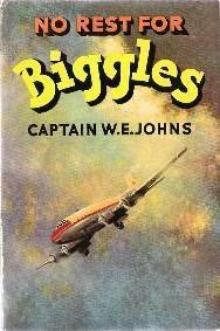 No Rest For Biggles
No Rest For Biggles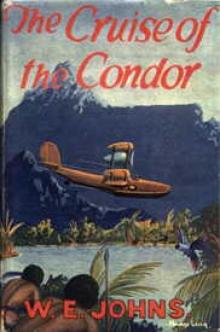 Biggles In The Cruise Of The Condor (02)
Biggles In The Cruise Of The Condor (02)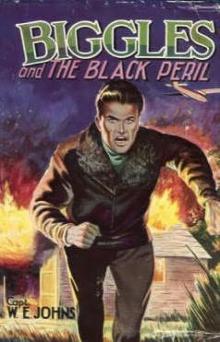 06 Biggles And The Black Peril
06 Biggles And The Black Peril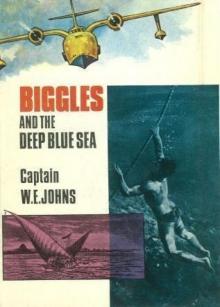 Biggles and the Deep Blue Sea
Biggles and the Deep Blue Sea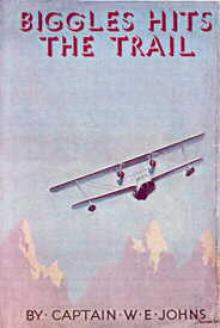 06 Biggles Hits The Trail
06 Biggles Hits The Trail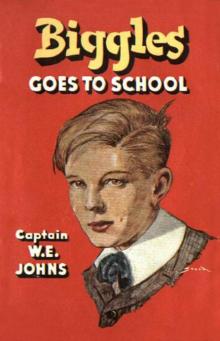 39 Biggles Goes To School
39 Biggles Goes To School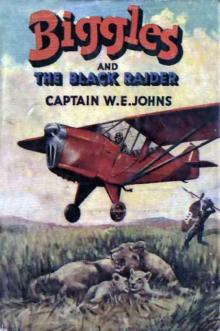 44 Biggles and the Black Raider
44 Biggles and the Black Raider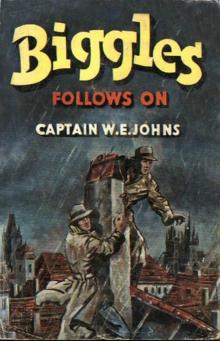 42 Biggles Follows On
42 Biggles Follows On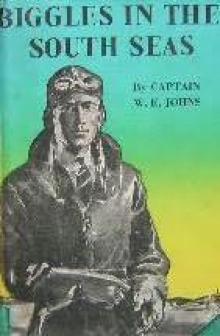 Biggles In the South Seas
Biggles In the South Seas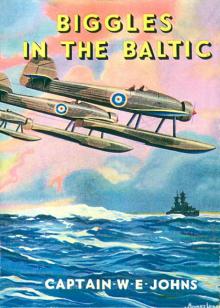 21 Biggles In The Baltic v3
21 Biggles In The Baltic v3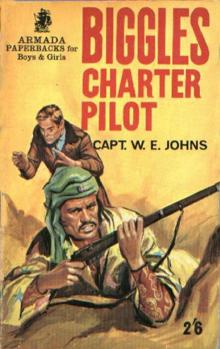 27 Biggles - Charter Pilot
27 Biggles - Charter Pilot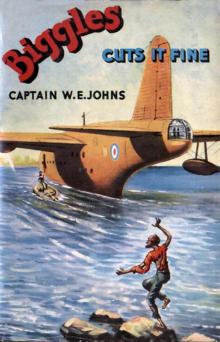 49 Biggles Cuts It Fine
49 Biggles Cuts It Fine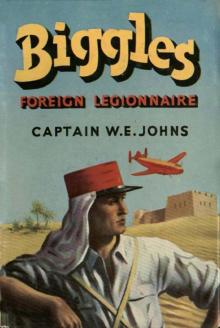 51 Biggles Foreign Legionaire
51 Biggles Foreign Legionaire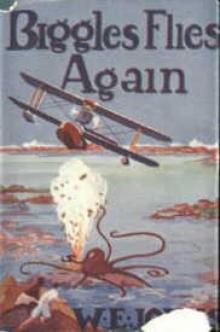 04 Biggles Flies Again
04 Biggles Flies Again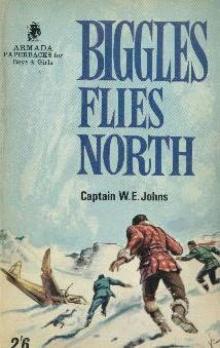 16 Biggles Flies North
16 Biggles Flies North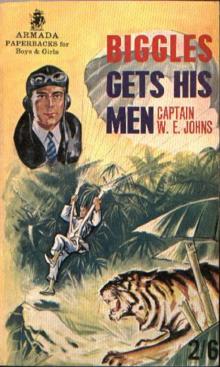 37 Biggles Gets His Men
37 Biggles Gets His Men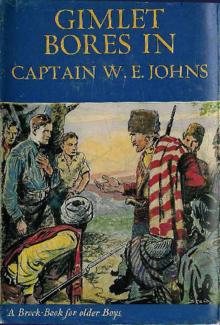 07 Gimlet Bores In
07 Gimlet Bores In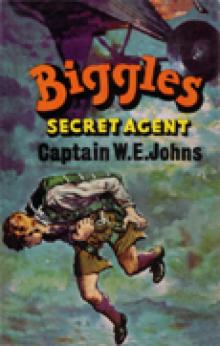 19 Biggles Secret Agent
19 Biggles Secret Agent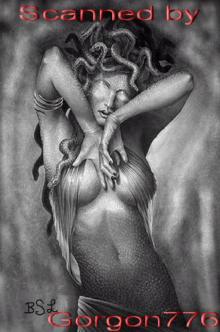 32 Biggles In The Orient
32 Biggles In The Orient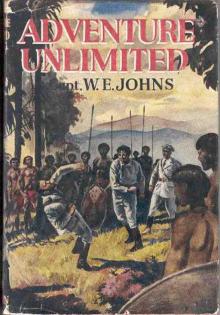 Adventure Unlimited
Adventure Unlimited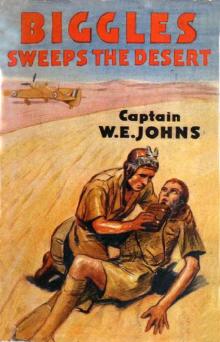 26 Biggles Sweeps The Desert
26 Biggles Sweeps The Desert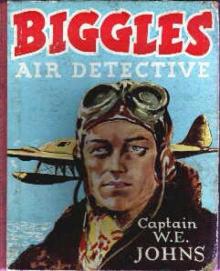 Biggles Air Detective (43)
Biggles Air Detective (43)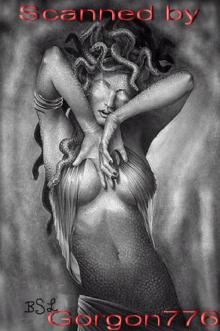 36 Biggles Breaks The Silence
36 Biggles Breaks The Silence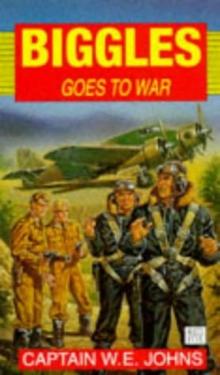 14 Biggles Goes To War
14 Biggles Goes To War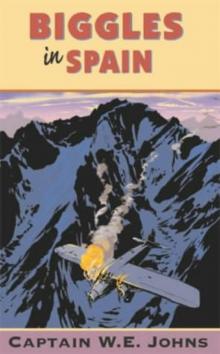 18 Biggles In Spain
18 Biggles In Spain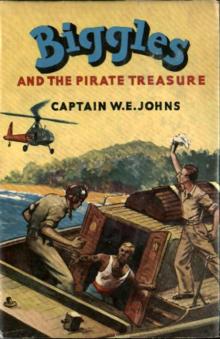 50 Biggles and the Pirate Treasure
50 Biggles and the Pirate Treasure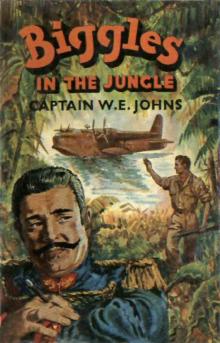 25 Biggles In The Jungle
25 Biggles In The Jungle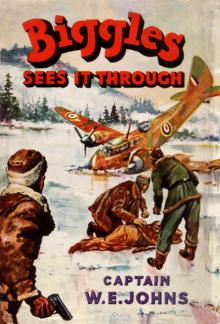 23 Biggles Sees It Through
23 Biggles Sees It Through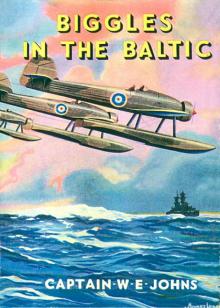 21 Biggles In The Baltic
21 Biggles In The Baltic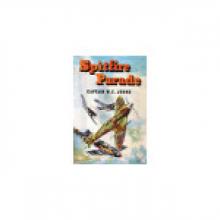 24 Spitfire Parade
24 Spitfire Parade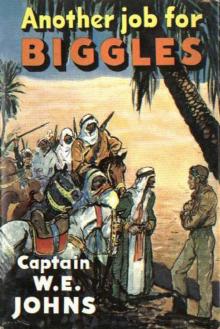 38 Another Job For Biggles
38 Another Job For Biggles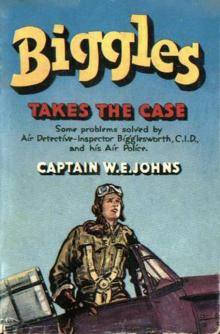 41 Biggles Takes The Case
41 Biggles Takes The Case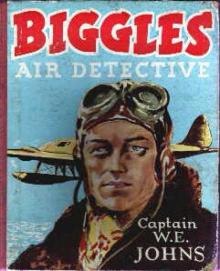 43 Biggles Air Detective
43 Biggles Air Detective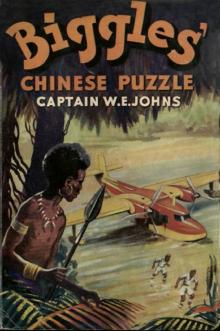 53 Biggles Chinese Puzzle
53 Biggles Chinese Puzzle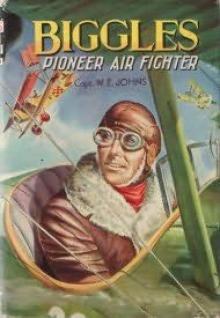 Biggles Pioneer Air Fighter (51)
Biggles Pioneer Air Fighter (51)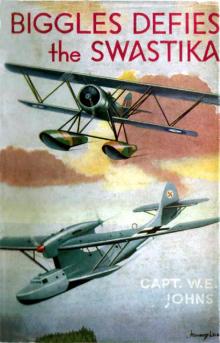 22 Biggles Defies The Swastika
22 Biggles Defies The Swastika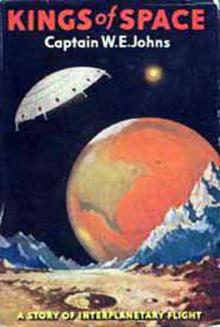 01 Kings Of Space
01 Kings Of Space